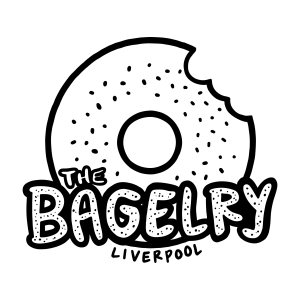The Bagelry

Background
The Bagelry consists of three shops serviced by a central bakery. The business began as a single shop with an integral bakery, but success has driven organic growth to its current size and setup. The company’s unique selling point (USP) is the creation of high-quality handmade products, including bagels and doughnuts.
The bakery unit is divided into a small office and storage room, a temperature-controlled mixing and preparation area, and an open main section with ovens, proving cabinets, and other essential equipment. The Bagelry wanted to expand, increasing the range of products and output to approximately 160% of the current capacity.
Challenge
The LJMU Horizons team identified several challenges, focusing solely on the bakery. It was decided that the current plant was not ideal for the existing or intended product range as it had been opportunistically purchased second-hand rather than scoped to meet specific requirements.
Much tedious and time-consuming preparatory work is done by hand, relying on skills and experience for smooth operations. The quality of the final product depends on various factors, including environmental conditions affecting water temperature, plant operation timings, and long warm-up periods.
Some of the challenges faced included:
- The time-consuming process of measuring the correct water quantity at the right temperature.
- A lack of clarity in the workflow and process variables
- Production was heavily reliant on skilled intervention, including plant switch-on timings.
- Plant equipment was often inoperative, ineffective, or unreliable.
- Inefficient working practices and sub-optimal space usage resulted from rented unit constraints.
- Uncertainty about equipment status and future usability.
- Lack of automation or semi-automation to enhance efficiency
- Inadequate air conditioning and other variables impacting the temperature.
- Storage and workspace were nearing capacity, raising concerns about supporting planned expansion.
Solutions
The LJMU Horizons team identified several solutions to maximise value within the available time at The Bagelry. They assessed, documented, and analysed the work process to identify opportunities for increased efficiency, including mapping the workflow.
Developing a 3D model of the current premises to analyse and optimise layout and storage was also recommended. These recommendations would create a digital workflow reflecting the current manufacturing process with suggested modifications to increase efficiency. Arrangements were made for site visits to relevant “best practice” locations, and a matrix of challenges with prioritised solutions was proposed to maximise impact.
The plan was modified when the need to create a device to prevent repetitive strain injury (RSI) when cutting bagels was identified. As it would provide a rapid resolution to a health and safety-related issue, digitisation was abandoned in favour of this. A specification was developed with The Bagelry, and a design was prototyped and modified using the feedback through additive manufacturing technology.
The teams led the Bagelry on a tour of another local bakery to see the potential for sensing technology within the industry and the key areas where data could be extracted.
Impact
The LJMU Horizons team have maximised value by modifying the work plan in partnership with the Bagelry to accommodate emerging new priorities. A key impact was the signposting and assistance with funding, which enabled The Bagelry to purchase more reliable and efficient equipment.
Using industry 4.0 technologies, the team were able to use additive manufacturing (3D printing) systems to rapidly design and develop a device to prevent repetitive strain injury (RSI) when cutting bagels.
The Horizons teams also recommended retrofitting sensors to existing hardware to enhance productivity, efficiency, and product consistency. These sensors will streamline processes, enabling better monitoring and control of production in the future.
“Working with the Horizons team at LJMU was a delight from start to finish. We received support and guidance to help us achieve goals that we would never have thought possible. With their support, we secured a grant for new bakery equipment, explored cost saving processes and gained new insights into creating a more efficient workflow. The whole team went above and beyond!”
– Sam Stonehouse, The Bagelry